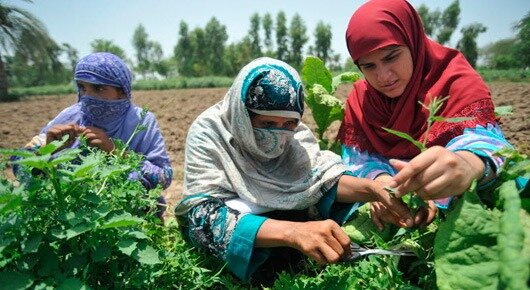FAO calls for innovative policies in Asia-Pacific to ensure food security amid COVID-19

FAO’s Regional Office for Asia and the Pacific warns that the global pandemic caused by COVID-19 requires a greater coordinated response on many policy levels, particularly to ensure food and nutrition security of billions of people in the vast Asia-Pacific region.
According to a policy brief released by the FAO Regional Office, the COVID-19 pandemic poses a serious threat to food and nutrition security in Asia and the Pacific, as the economic turmoil caused by the pandemic and the lockdowns threaten both economic and physical access to food.
While the slowing global economy has caused widespread job losses, collapsing incomes, and falling remittances in Asia and the Pacific, FAO says that this convergence of factors may make food, particularly nutritious food, less affordable for some, especially the poor as well as vulnerable groups such as women, children and the disabled.
Furthermore, despite the fact that over the last couple of months, agricultural production and food supply have been less affected and international food market prices have remained generally soft, the Organization warns that any disruptions to and possible breakdowns of marketing, logistics, and trading systems – due to the pandemic – could make food unavailable in some locations at some times.
The report also indicates that the situation in countries that are engaged in conflict, sheltering large numbers of refugees, or experiencing particularly severe natural disasters is more fragile, as these nations are more likely to be severely affected by COVID-19, experiencing the worse food insecurity and malnutrition.
Addressing such grave concerns, FAO’s Regional Office for Asia and the Pacific calls on the region’s countries to focus on:
• Controlling the spread of the virus and implementing physical distancing to reduce fear among all laborers, including those working in food supply chains.
• Expanding social protection, in the short-term as part of countries’ economic stimulus measures, to cover more people and provide more generous benefits to ensure food access for all, while also reducing the administrative burden needed to access the funds.
• Necessity of working together for Governments and the private sector to solve disruptions in food supply chains when they arise.
• Avoiding export restrictions in international trade to make sure supply chains continue to function.
• Building resilience into food systems to safeguard them against future economic and health shocks as part of stimulus measures to ensure food access.
As per Jong-Jin Kim, FAO Deputy Regional Representative and head of the FAO Regional Office for Asia and the Pacific, in such circumstances, “clearly we need to adapt many aspects of our present policies and approaches to growing, harvesting, transporting, processing and selling food in this evolving era of COVID-19 to secure our nutritional well-being and our livelihoods.”
